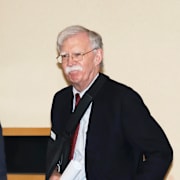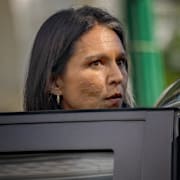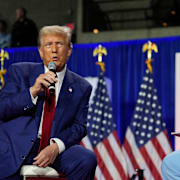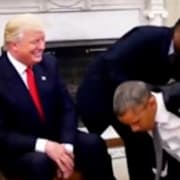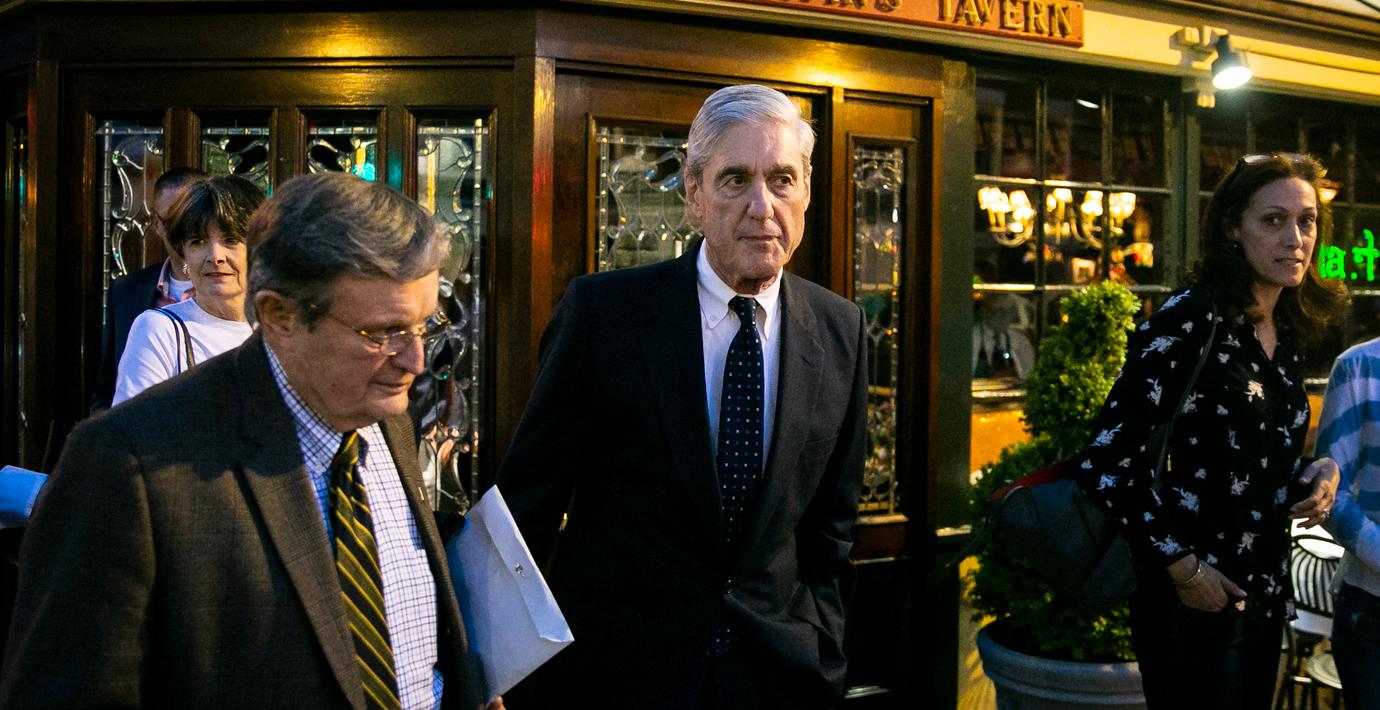
Beskedet: Mueller kommer inte att vittna nästa vecka
Den särskilde åklagaren Robert Mueller, som lett Rysslandsutredningen, kommer inte att vittna inför kongressen nästa vecka. Det meddelar Jerrold Nadler, ordförande i representanthusets juridiska utskott, enligt Reuters.
Nadler hoppas att han inte behöver kräva att Mueller dyker upp för att vittna, men han kommer att formellt kräva det om det behövs. I nuläget pågår frotfarande förhandlingar.
Utskottet har dessutom gått ut med ett krav att den tidigare Vita huset-rådgivaren Don McGahn ska infinna sig för utfrågning den 21 maj.
bakgrund
Rysslandsutredningen
Wikipedia (en)
The Special Counsel investigation of 2017 to 2019, also referred to as the Russia investigation, and later the Mueller probe and Mueller investigation, started as a covert United States counterintelligence investigation of the Russian government's efforts to interfere in the 2016 presidential election. According to its authorizing document, which was signed by Deputy Attorney General Rod Rosenstein on May 17, 2017, the investigation's scope included allegations that there were links or coordination between Donald Trump's presidential campaign and the Russian government as well as "any matters that arose or may arise directly from the investigation." It included a criminal investigation which looked into potential obstruction of justice charges against Trump and others within the campaign and administration. Conducted by the Department of Justice Special Counsel's Office headed by Robert Mueller, a Republican and former Director of the Federal Bureau of Investigation (FBI), the Special Counsel investigation began eight days after President Trump dismissed FBI director James Comey, who had been leading existing FBI investigations since July 2016 into links between Trump associates and Russian officials or their affiliates. Following Comey's firing, over 130 Democratic Party lawmakers in Congress called for the appointment of a special counsel, while the FBI began investigating Trump for obstruction of justice. The special counsel's office took over both these investigations from the FBI.By the conclusion of the investigation in March 2019, 34 persons had been indicted for federal crimes. Seven of these individuals pleaded guilty or were convicted in federal court. In August 2018, former Trump campaign chairman Paul Manafort was convicted of eight felony counts of fraud and bank crimes in Virginia and in a plea bargain a month later with prosecutors, also pleaded guilty to conspiracy to defraud the United States and obstruct justice. Michael Flynn, Donald Trump’s first National Security Advisor, pleaded guilty to lying to the FBI about his discussions with the Russian ambassador Sergey Kislyak during the transition, and became a cooperating witness for the investigation. Others pleading guilty included Manafort's business partner Rick Gates, Dutch attorney Alex van der Zwaan, Trump campaign adviser George Papadopoulos, and bank account seller Richard Pinedo. Most became cooperating witnesses for investigators. In February 2018, Mueller indicted 13 Russian citizens and three Russian entities, including the Internet Research Agency; in June, he indicted Konstantin Kilimnik, Manafort's former business partner, to whom Manafort had passed internal campaign polling data. In July 2018, 12 members of the Russian GRU cyber espionage group known as Fancy Bear, responsible for the 2016 DNC email hacking, were also indicted. Investigations into Trump's personal lawyer, Michael Cohen, and lobbyist W. Samuel Patten, were referred to their respective United States Attorneys. Finally, longtime Trump advisor Roger Stone was indicted on seven charges in January 2019.Initially receiving bipartisan support, the Special Counsel investigation was later criticized by Trump and his supporters. Don McGahn told investigators that Trump asked that the investigation be halted, and that Mueller be fired. Trump has criticized people or groups related to the investigation over 1,000 times. On January 30, 2019, an FBI court filing revealed that someone located in Russia was also attempting to discredit the Special Counsel investigation through Twitter. Some allegations of investigators' misconduct have been raised and were almost immediately debunked. Trump and his supporters criticized the cost of the investigation. By December 2018, the investigation had cost approximately $25 million while gaining approximately $48 million through asset forfeitures.The Special Counsel's office concluded its investigation and submitted a report (also known as the "Mueller Report") to Attorney General William Barr on March 22, 2019. Barr had been previously critical of the investigation before Trump announced on December 7, 2018, his intent to nominate Barr for Attorney General. A redacted version of the report was released on April 18, 2019. The report concluded that Russian interference in the 2016 presidential election did occur and "violated U.S. criminal law." Firstly a Russian social media campaign supported Trump's presidential candidacy while attacking the Hillary Clinton presidential campaign; secondly, Russian intelligence performed computer hacking and strategic releasing of damaging material from the Clinton campaign and Democratic Party organizations. The report writes that the investigation "identified numerous links between the Russian government and the Trump campaign", and that the Trump campaign "expected it would benefit electorally" from Russian hacking efforts, but ultimately "the investigation did not establish that members of the Trump campaign conspired or coordinated with the Russian government in its election interference activities". The report describes 10 or 11 episodes where Trump could potentially have obstructed justice. However, as the investigation intentionally took an approach that could not result in a judgment that President Trump committed a crime, the report stated "while this report does not conclude that the President committed a crime, it also does not exonerate him". The special counsel's office concluded that Congress can decide whether Trump obstructed justice, and has the authority to take action against Trump if obstruction occurred.
Omni är politiskt obundna och oberoende. Vi strävar efter att ge fler perspektiv på nyheterna. Har du frågor eller synpunkter kring vår rapportering? Kontakta redaktionen
